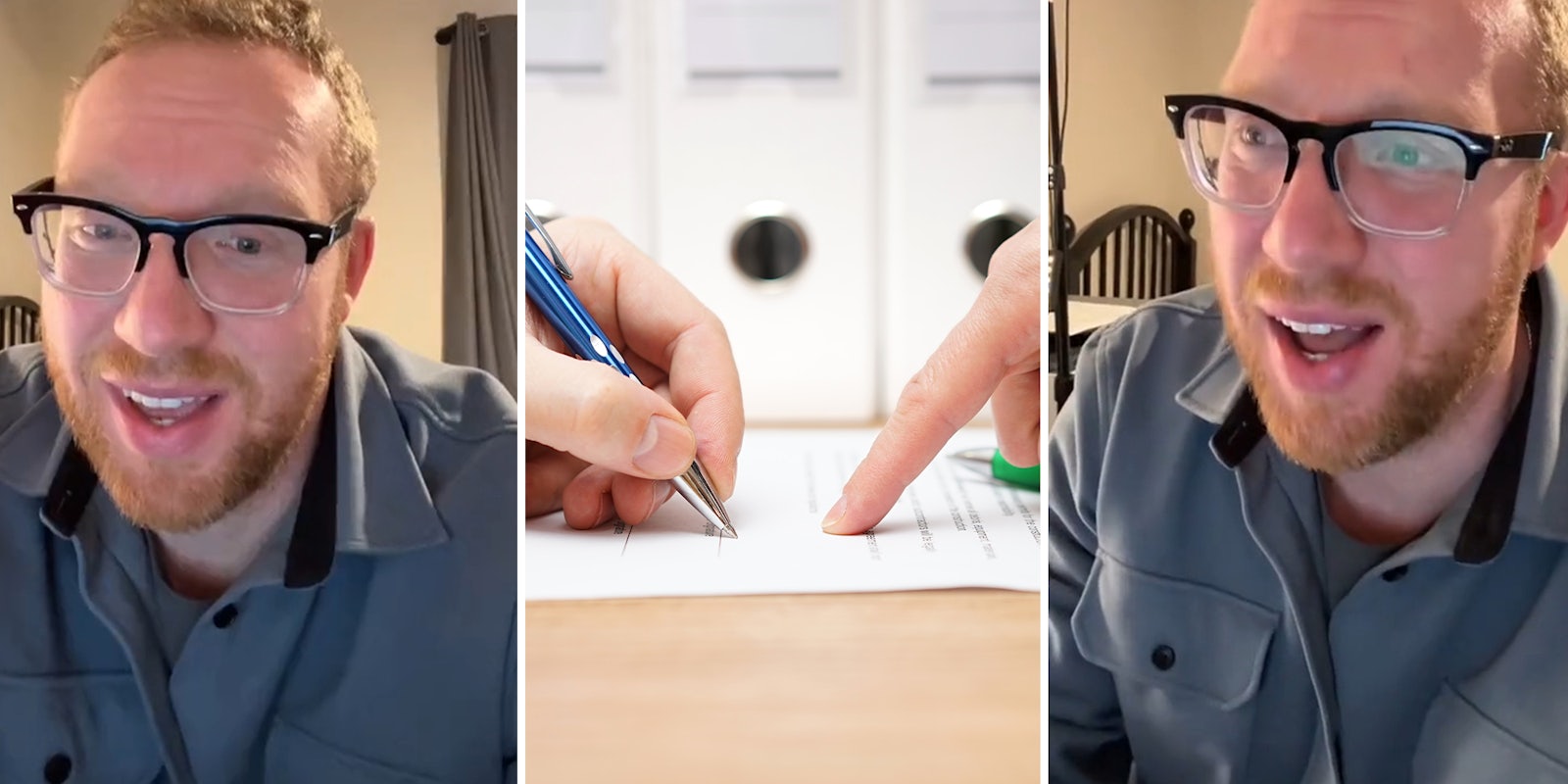A labor lawyer on TikTok shared the common mistake among workers who need help after losing or leaving their jobs. He says the mistake forced him to turn away a potential new client.
“There is literally nothing I can do for them,” Ryan Stygar said. “And it’s because they made a critical mistake that you’ve probably made at every job you’ve worked.”
In the viral video, Stygar (@attorneyryan) explains that just because your boss or the human resources director at work tells you to sign something after quitting, getting fired, or being laid off, it doesn’t mean you actually have to sign.
“They’re liars,” Stygar says. “They’re trying to screw you.”
He says that you don’t have to sign anything, and once you sign a severance agreement, “You’re done.”
“I can’t help you anymore. Stop signing stuff, really. Don’t let people strong-arm you,” he insists.
In the comments section, viewers shared their own experiences with signing documents while on their way out of a job.
“I had employer say i would not get the severance if i didn’t sign. They had me [stranded] in an oil field. I don’t have a choice, covid hit 3 days late,” a commenter shared.
“Old company tried to get me to sign for 8k, I got a lawyer and got 40k,” another wrote.
@attorneyryan PSA — Don’t sign anything you don’t understand! #knowyourrights ♬ original sound – Attorney Ryan
Stygar’s video has over 300,000 views and more than 250 comments.
However, it doesn’t seem the lawyer is considering recent legal updates to severance agreements.
In February, the National Labor Relations Board ruled that companies can’t demand silence from laid-off or fired employees through confidentiality, non-disclosure, and non-disparagement clauses in their severance agreement.
The rule does not apply to workers in the public sector or those in management positions.
Previously, severance agreements often acted as an exchange. The employer would give a laid-off or fired employee a stated amount of pay or benefits in exchange for the former employee’s silence (they can’t publicly say anything negative about the company) and giving up their right to sue the company over an issue related to former employment or the termination.
The ruling applies retroactively, so even agreements signed before February cannot be enforced (at least not regarding broad non-disparagement and non-disclosure clauses), the Muse reported.
Companies can only include these clauses in future agreements using specific wording, like limiting people from sharing trade secrets or protecting against defamation.
“It’s long been understood by the Board and the courts that employers cannot ask individual employees to choose between receiving benefits and exercising their rights under the National Labor Relations Act. Today’s decision upholds this important principle and restores longstanding precedent,” said NLRB Chairman Lauren McFerran.
The Daily Dot reached out to Stygar for comment via email.
Update 7:50 am CT Nov. 7: In an email to the Daily Dot, Stygar shared the following:
“It is not advisable to sign a severance without talking to a lawyer first. The severance amount may be a low-ball. If you have served a fairly long tenure then its customary to offer more. If you have a potential legal claim against the company then the severance should be higher to reflect the value of the claim.”
Regarding the NLRB update, he shared that it “applies specifically to broadly worded non-disparagement and non-disclosure agreements which could reasonably interfere with employees’ Section 7 rights under the NLRA.”
These rights include the ability to join a union, form a union, and participate in collective bargaining.
“It is wise to seek an attorney’s advice (particularly an employment attorney) if you aren’t sure what your agreement says (or doesn’t say),” he concluded.
A previous version of this story incorrectly attributed the original video, posted in February, to TikTok user @attorneyryan.12. Stygar clarified in an Instagram Reel that his official account is @attorneyryan, and the other account is impersonating him and stealing his content. He also warned that @attorneyryan.12 uses his image to scam people out of money by offering consults that they won’t receive.


